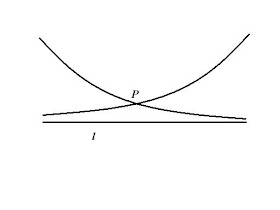Homily preached at Eltham College on 1st and 2nd March 2010 based on St Luke xi.1-11.Let us pray.
[PAUSE for shuffling]
Interesting!
Why did you do that?
All that shuffling and shifting in your seat,
making the benches creak and groan
like an oak tree during
the elephant nesting season.
It’s an automatic response,
a ceremony, that when someone says
“Let us pray”, everyone slumps forward
in their seat.
Does that mean that
you’ve all been hypnotised
so that when the phrase “let us pray” is uttered,
you are to believe that your spines
have turned to rice pudding?
Of course not.
That’s the way you’ve been taught to pray
– bowing your head,
putting your hands together
and perhaps closing your eyes.
And what is it that you do when you pray?
[PAUSE]
It must be difficult
if you don’t believe in God.
What do you do when others are praying?
Sit there and think,
“Oh do come on, you’re boring me silly?”
or does your mind wander
to what you have to do today:
beat year 10 to
the Krispy Kreme Doughnut sale,
create foul and pungent aromas in Chemistry
that will strip the paint off of the walls
as far as D/T
or find 100 different chat-up lines
to entice Pixie Lott out on a date with you.
Perhaps actually, you do pray.
“Please God,
let me launch a nuke tonight in COD.”
“Please God,
let there be a chocolate-covered doughnut left.”
“Please God,
don’t let the test on the subjunctive
be today.”
“Please God,
make Pixie Lott drive by in the limo,
get a puncture have to stop by the school,
just as I am there.
Please help me to lift the car up by one hand
whilst changing the wheel with my teeth,
so that she’ll think I’m hench
and thus want to go on a date with me.”
And what do you suppose
God’s reactions to these prayers are?
[PAUSE]
Perhaps you pray the prayer
that’s being prayed out loud.
Try this one for size,
and this time focus on the prayer itself.
Let us pray.
Prevent us, O Lord, in all our doings
with thy most gracious favour,
and further us with thy continual help;
that in all our works,
begun,
continued,
and ended in thee,
we may glorify thy holy Name,
and finally by thy mercy
obtain everlasting life;
through Jesus Christ our Lord. Amen.
Of course you realise that
the original meaning of "prevent"
was "go before".
How did you cope with praying that?
Oh dear, back to Miss Lott again were we?
If your mind was wandering during that,
don’t worry,
it even happens to the professionals!
St Augustine even moans about
his mind wandering.
But he uses the words
to focus his mind back to prayer.
If, however, all your prayer consists of is
“Please God let me able to do such and such”
and
“Please God make whosits to do blank”
then you are missing the point of prayer.
Yes, prayer is about communicating with God.
How is presenting God
with a shopping list of your requirements
communication?
Are our prayers reducing God
to the level of the Genie of the Lamp,
a being whose only purpose
is to do what we want?
[PAUSE]
So just how should we pray?
One of the disciples asks Jesus the very same question.
He replies with the Lord’s Prayer.
Now that's a homily on it's own!
While some of us know this prayer off by heart,
others of us don’t.
It’s worth looking at it carefully by yourself,
because in it we find that prayer
isn’t just about asking for help
with the problems in our lives, small or great.
It’s about asking for help to live life
with God
in a very personal and intimate relationship
despite the problems that life throws at us.
The Lord Jesus goes on to say that
God does actually know
both what we want
and what we really need
before we even ask Him.
The point is that we recognise His existence
as a figure who cares.
By asking Him for things in prayer,
we recognise that we need Him.
You might think of this as grovelling.
As Monty Python would say
O Lord, please don't burn us,
Don't grill or toast your flock,
Don't put us on a barbecue,
Or simmer us in stock,
Don't braise us or bake or boil us,
Or stir-fry us in a wok.
Oh please don't lightly poach us,
Or baste us with hot fat,
Don't fricassee or roast us,
Or boil us in a vat,
And please don't stick thy servants, Lord,
In a Rotissomat.
Do we pray like this?
[PAUSE]
The Lord Jesus tells us
that we can be bold in our prayer.
We are allowed to ask.
However, that does not automatically
mean that the answer to the prayer will be “yes”.
Sometimes the answer will be “no”
and other times it will be silence.
God is not an ogre
– He is very much concerned with that
which is really good for us,
though we can’t always see
what is really good for us.
Perhaps our prayers would be better suited
to getting to know Him
A reporter asks Mother Theresa of Calcutta
-now Blessed Theresa of Calcutta-
“what do you say to God when you pray?”
She replies “Nothing. I listen”
“And what does He say to you?”
“Nothing,” says the aged nun, “He listens.”
Yes, this does sound like
one of those useless and unfathomable pieces
of Christian mysticism,
but how do we expect to communicate wih anyone,
let alone God without actually listening
to them.
[PAUSE]
When you pray, are you always asking for something?
Or sometimes, just sometimes, do you listen?




